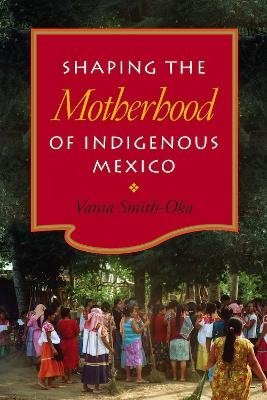
Shaping the Motherhood of Indigenous Mexico
Seiten
2013
Vanderbilt University Press (Verlag)
978-0-8265-1918-4 (ISBN)
Vanderbilt University Press (Verlag)
978-0-8265-1918-4 (ISBN)
Mainstream Mexican views of indigenous women centre on them as problematic mothers, and development programmes have included the goal of helping these women become ""good mothers."" Economic incentives and conditional cash transfers are the vehicles for achieving this goal.
With ethnographic immediacy, Shaping the Motherhood of Indigenous Mexico examines the dynamics among the various players - indigenous mothers, clinicians, and representatives of development programmes. The women's voices lead the reader to understand the structures of dependency that paradoxically bind indigenous women within a programme that calls for their empowerment.
The cash transfer programme is Oportunidades, which enrolls more than a fifth of Mexico's population. It expects mothers to become involved in their children's lives at three nodes - health, nutrition, and education. If women do not comply with the standards of modern motherhood, they are dropped from the programme and lose the bi-monthly cash payments.
Smith-Oka explores the everyday implementation of the program and its unintended consequences. The mothers are often berated by clinicians for having too many children (Smith-Oka provides background on the history of eugenics and population control in Mexico) and for other examples of their ""backward"" ways. An entire chapter focuses on the humor indigenous women use to cope with disrespectful comments. Ironically, this form of resistance allows the women to accept the situation that controls their behaviour.
With ethnographic immediacy, Shaping the Motherhood of Indigenous Mexico examines the dynamics among the various players - indigenous mothers, clinicians, and representatives of development programmes. The women's voices lead the reader to understand the structures of dependency that paradoxically bind indigenous women within a programme that calls for their empowerment.
The cash transfer programme is Oportunidades, which enrolls more than a fifth of Mexico's population. It expects mothers to become involved in their children's lives at three nodes - health, nutrition, and education. If women do not comply with the standards of modern motherhood, they are dropped from the programme and lose the bi-monthly cash payments.
Smith-Oka explores the everyday implementation of the program and its unintended consequences. The mothers are often berated by clinicians for having too many children (Smith-Oka provides background on the history of eugenics and population control in Mexico) and for other examples of their ""backward"" ways. An entire chapter focuses on the humor indigenous women use to cope with disrespectful comments. Ironically, this form of resistance allows the women to accept the situation that controls their behaviour.
Vania Smith-Oka is Assistant Professor of Anthropology and a Fellow of the Kellogg Institute for International Studies at the University of Notre Dame.
| Zusatzinfo | 10 illustrations |
|---|---|
| Verlagsort | Tennessee |
| Sprache | englisch |
| Maße | 153 x 229 mm |
| Gewicht | 389 g |
| Themenwelt | Geisteswissenschaften ► Geschichte ► Regional- / Ländergeschichte |
| Medizin / Pharmazie ► Gesundheitsfachberufe ► Hebamme / Entbindungspfleger | |
| Sozialwissenschaften ► Soziologie | |
| ISBN-10 | 0-8265-1918-0 / 0826519180 |
| ISBN-13 | 978-0-8265-1918-4 / 9780826519184 |
| Zustand | Neuware |
| Haben Sie eine Frage zum Produkt? |
Mehr entdecken
aus dem Bereich
aus dem Bereich
Universalgelehrter, Polarreisender, Entdecker
Buch | Hardcover (2024)
mareverlag
28,00 €


